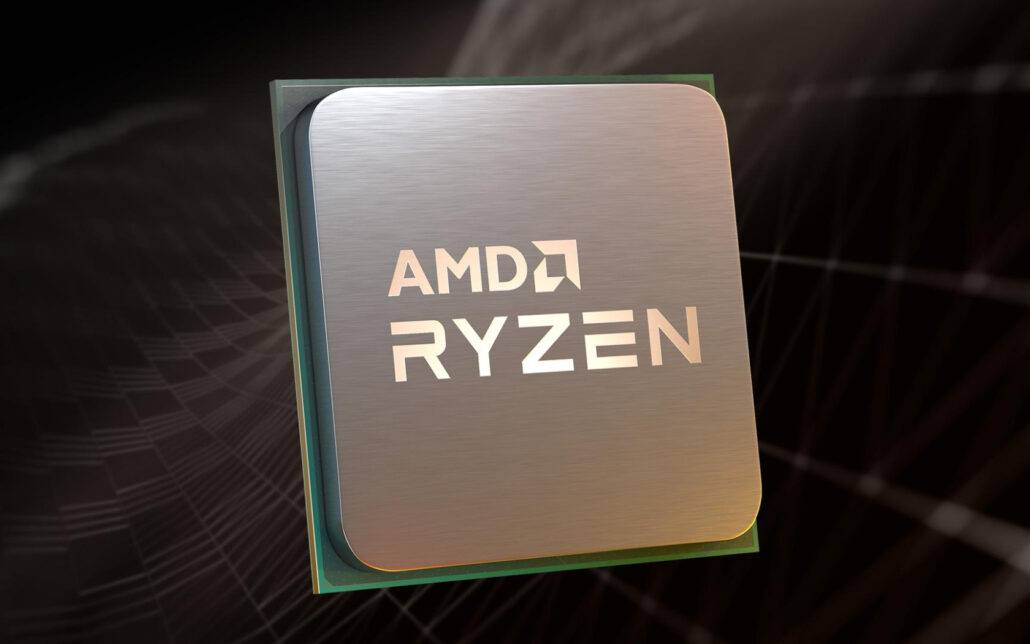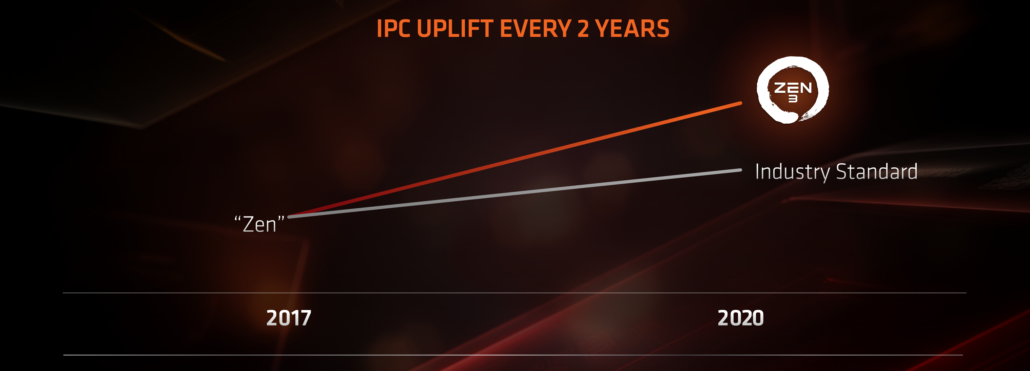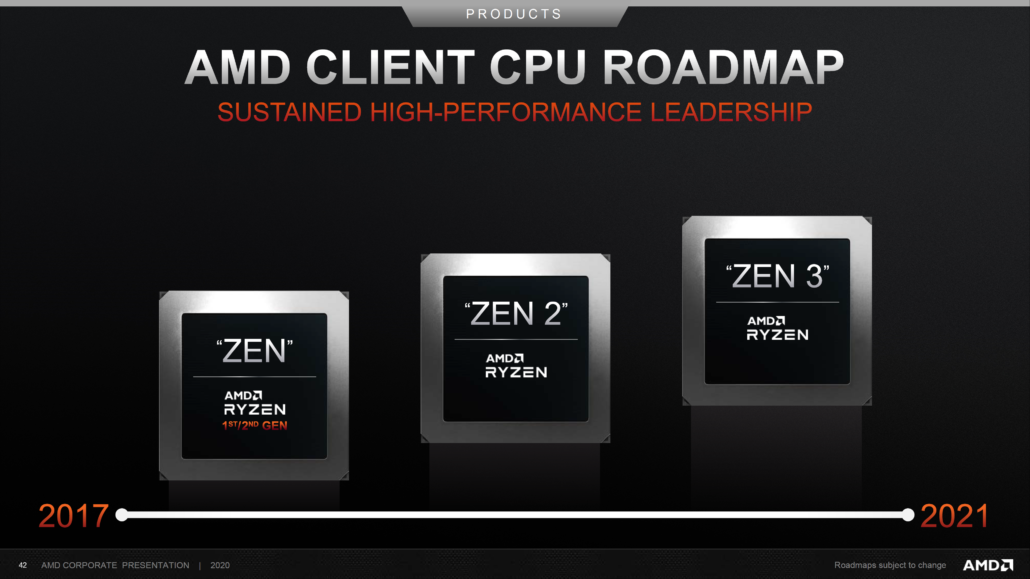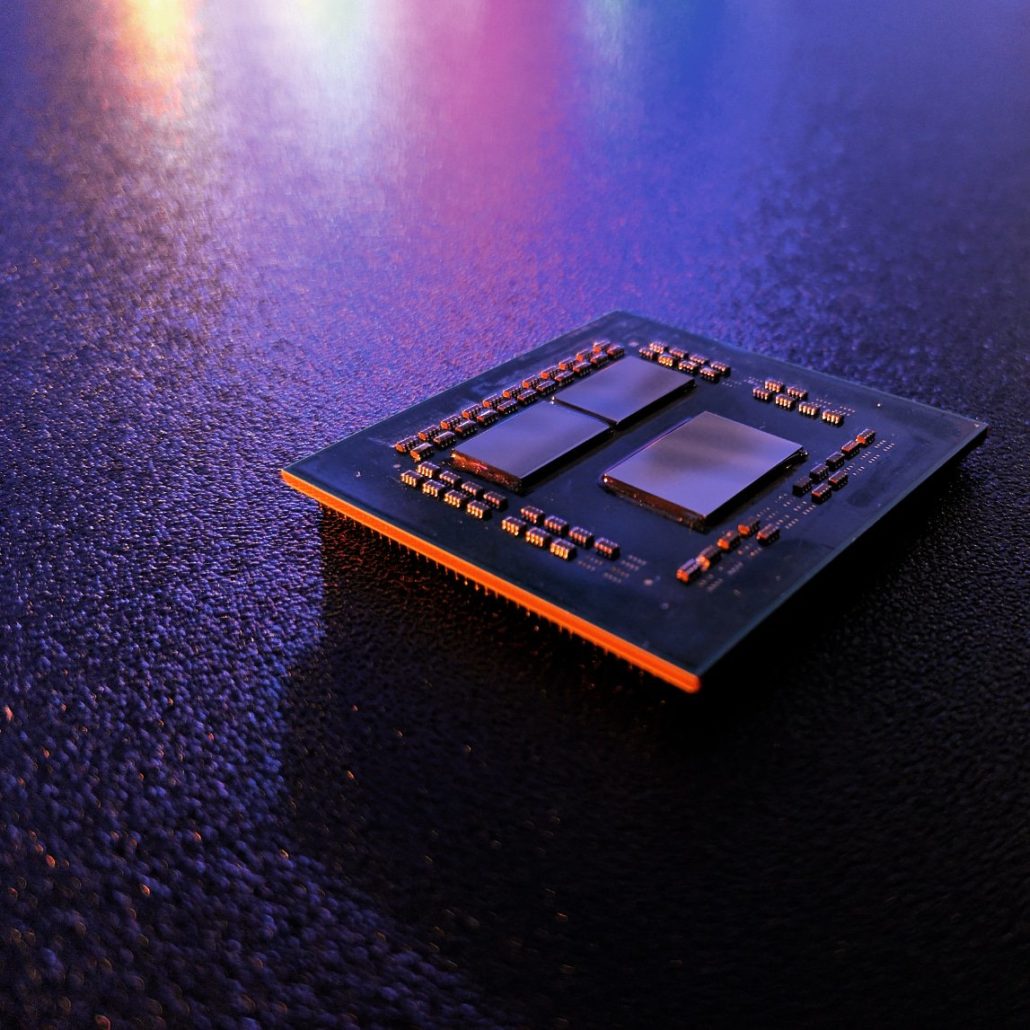
Early AMD Ryzen 4000 ‘Vermeer’ Desktop CPUs seem to feature some impressive clock speeds as the latest report from Igor’s Lab suggests an even higher boost frequency for the flagship Ryzen 9 4950X processor.
AMD Ryzen 9 4950X 16 Core ‘Zen 3’ Desktop CPU Now Spotted With Faster 4.9 GHz Boost Clocks In ES State, 200 MHz Faster Than The Ryzen 9 3950X
Yesterday, Igor reported that he has spotted the Zen 3 based Ryzen ‘Vermeer’ desktop processor which he believes to be the flagship Ryzen 9 4950X. The engineering sample spotted yesterday was running at speeds of up to 4.8 GHz but the latest sample features even higher base & boost clocks which are just a 100 Mhz short of the 5 GHz mark.
The AMD Ryzen 9 4950X CPU sample has the “100-000000065-04_ 46/36 _Y” OPN code. The report states that this is the same Ryzen 9 4950X CPU with 16 cores and 32 threads but a faster revision that comes with higher clock speeds. The CPU has a base clock of 3.7 GHz and a boost clock of 4.9 GHz. Another variant has also been spotted which conservative clocks of 3.6 GHz base and 4.6 GHz boost clocks.

Compared to the sample from yesterday, the base clock receives a 200 MHz bump, and while the boost clock receives a 100 MHz bump. Compared to the existing Ryzen 9 3950X CPU, the speeds put the new flagship at a 200 MHz higher base clock and a 300 MHz higher boost clock which is very impressive considering that this chip is still in an engineering state.
Of course, since there are several variants being tested, we can’t say what the final clocks would look like but considering that 4.9 GHz is achievable for early samples, there’s a big possibility that we might just see 5 GHz on AMD’s fourth iteration of the Zen core architecture (Zen 3).
Igor has also previously mentioned that the Zen 3 based Ryzen ‘Vermeer’ lineup is already in B0 stepping and going into mass production soon. He also referenced OPN’s of several 8 and 16 core chips, although in an earlier A0 revision than the one we are looking at today. These include the following:
- OPN 1: 100-000000065-04_ 46/36 _Y (16 Cores)
- OPN 2: 100-000000061-06_ 49/37 _Y (16 Cores)
- OPN 1: 100-000000059-14_46 / 37_Y (16 Cores)
- OPN 2: 100-000000059-15_46 / 37_N (16 Cores)
- OPN 1: 100-000000063-07_46 / 40_N (8 Cores)
- OPN 2: 100-000000063-08_46 / 40_Y (8 Cores)
- OPN 3: 100-000000063-23_44 / 38_N (8 Cores)
AMD Flagship Ryzen AM4 Desktop CPUs:
| CPU Name | CPU Architecture | Process | Cores/Threads | Base Clock | Boost Clock | Cache | TDP | Price | Launch |
|---|---|---|---|---|---|---|---|---|---|
| AMD Ryzen 7 1800X | Zen 1 | 14nm | 8/16 | 3.60 GHz | 4.00 GHz | 20 MB | 95W | $499 US | 2017 |
| AMD Ryzen 7 2700X | Zen + | 12nm | 8/16 | 3.70 GHz | 4.30 GHz | 20 MB | 105W | $329 US | 2018 |
| AMD Ryzen 9 3950X | Zen 2 | 7nm | 16/32 | 3.50 GHz | 4.70 GHz | 72 MB | 105W | $749 US | 2019 |
| AMD Ryzen 9 4950X/5950X | Zen 3 | 7nm+ | 16/32 | 3.70 GHz (ES) | 4.90 GHz (ES) | 72 MB? | 105W? | $500 US+ | 2020 |
Here’s Everything We Know About The AMD’s Zen 3 Based Ryzen 4000 ‘Vermeer’ Desktop CPUs
The AMD Zen 3 architecture is said to be the greatest CPU design since the original Zen. It is a chip that has been completely revamped from the group up and focuses on three key features of which include significant IPC gains, faster clocks, and higher efficiency.

AMD has so far confirmed themselves that Zen 3 brings a brand new CPU architecture, which helps deliver significant IPC gains, faster clocks, and even higher core counts than before. Some rumors have even pointed to a 17% increase in IPC and a 50% increase in Zen 3’s floating-point operations along with a major cache redesign.
We also got to see a major change to the cache design in an EPYC presentation, which showed that Zen 3 would be offering a unified cache design which should essentially double the cache that each Zen 3 core could have access compared to Zen 2.
The CPUs are also expected to get up to 200-300 MHz clock boost, which should bring Zen 3 based Ryzen processors close to the 10th Generation Intel Core offerings. That, along with the massive IPC increase and general changes to the architecture, would result in much faster performance than existing Ryzen 3000 processors, which already made a huge jump over Ryzen 2000 and Ryzen 1000 processors while being an evolutionary product rather than revolutionary, as AMD unveiled very recently.

The key thing to consider is that we will get to see the return of the chiplet architecture and AMD will retain support on the existing AM4 socket. The AM4 socket was to last until 2020 so it is likely that the Zen 3 based Ryzen 4000 CPUs would be the last family to utilize the socket before AMD goes to AM5 which would be designed around the future technologies such as DDR5 and USB 4.0. AMD’s X670 chipset was also hinted as to arrive by the end of this year and will feature enhanced PCIe Gen 4.0 support and increased I/O in the form of more M.2, SATA, and USB 3.2 ports.
It was recently confirmed by AMD that Ryzen 4000 Desktop CPUs will only be supported by 400 & 500-series chipsets while 300-series support would be left out.
As for competition, the AMD Ryzen 4000 ‘Zen 3 Vermeer’ lineup would compete against Intel’s next-gen Rocket Lake-S desktop processors. Tackling the existing Intel Comet Lake-S won’t be so hard since the Ryzen 3000 CPUs are competitively positioned against the entire lineup as evident in our own review but Rocket Lake-S seems to be a major architectural uplift for Intel (although still based on 14nm process) which might just be Intel’s way back in the desktop mainstream market.

With that said, Rocket Lake-S is still something that needs to be evaluated prior to its release before we can call it a Zen 3 challenger but time would make it clear. As of now, the competitive advantage that AMD has with its Zen 2 based Ryzen 3000 is just way too big compared to whatever Intel has in their sleeves for this year and Zen 3 based Ryzen 4000 processors are going to push that envelope even further.
AMD CPU Roadmap (2018-2020)
| Ryzen Family | Ryzen 1000 Series | Ryzen 2000 Series | Ryzen 3000 Series | Ryzen 4000 Series | Ryzen 5000 Series | Ryzen 6000 Series |
|---|---|---|---|---|---|---|
| Architecture | Zen (1) | Zen (1) / Zen+ | Zen (2) / Zen+ | Zen (3) / Zen 2 | Zen (3)+ / Zen 3? | Zen (4) / Zen 3? |
| Process Node | 14nm | 14nm / 12nm | 7nm | 7nm+ / 7nm | 7nm+ / 7nm | 5nm / 7nm+ |
| Server | EPYC ‘Naples’ | EPYC ‘Naples’ | EPYC ‘Rome’ | EPYC ‘Milan’ | EPYC ‘Milan’ | EPYC ‘Genoa’ |
| Max Server Cores / Threads | 32/64 | 32/64 | 64/128 | 64/128 | TBD | TBD |
| High End Desktop | Ryzen Threadripper 1000 Series (White Haven) | Ryzen Threadripper 2000 Series (Coflax) | Ryzen Threadripper 3000 Series (Castle Peak) | Ryzen Threadripper 4000 Series (Genesis Peak) | Ryzen Threadripper 5000 Series | Ryzen Threadripper 6000 Series |
| Max HEDT Cores / Threads | 16/32 | 32/64 | 64/128 | 64/128? | TBD | TBD |
| Mainstream Desktop | Ryzen 1000 Series (Summit Ridge) | Ryzen 2000 Series (Pinnacle Ridge) | Ryzen 3000 Series (Matisse) | Ryzen 4000 Series (Vermeer) | Ryzen 5000 Series (Warhol) | Ryzen 6000 Series (Raphael) |
| Max Mainstream Cores / Threads | 8/16 | 8/16 | 16/32 | 16/32 | TBD | TBD |
| Budget APU | N/A | Ryzen 2000 Series (Raven Ridge) | Ryzen 3000 Series (Picasso Zen+) | Ryzen 4000 Series (Renoir Zen 2) | Ryzen 5000 Series (Cezanne Zen 3) | Ryzen 5000 Series (Rembrandt Zen 3) |
| Year | 2017 | 2018 | 2019 | 2020/2021 | 2020/2021 | 2022 |